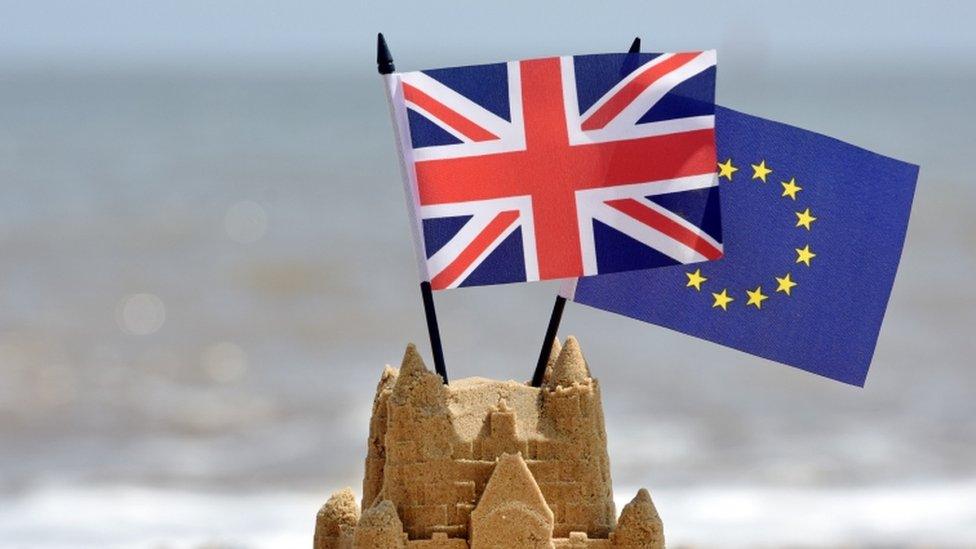G20: Questions for Theresa May over UK's global role
- Published
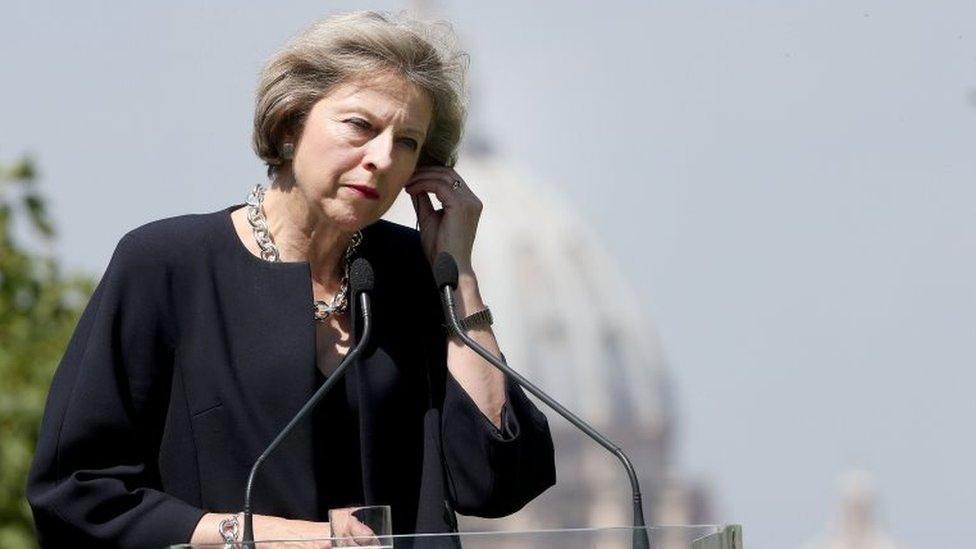
When Theresa May steps on to the global stage for the first time this weekend at the G20 summit in China, she will be hoping not to repeat what happened the last time a female British prime minister attended an international conference.
In November 1990, Margaret Thatcher went to Paris for a summit on European security. In her absence, her opponents got their act together and within days she was out of power.
Twenty-six years on, the new prime minister will travel to Hangzhou in utterly different circumstances. Mrs May's party may still be divided over Europe but she has the double fortune of a political honeymoon and a divided opposition.
Yet this, her first outing at a truly global summit since she became prime minister, will be a big moment, a chance to meet key world leaders and establish relationships that will help shape her premiership.
I understand that Mrs May is preparing to hold separate, private meetings with President Obama of the United States, President Putin of Russia, President Xi Jinping of China and Prime Minister Modi of India. She will be keen to meet them and begin informal discussions about post-Brexit trade.
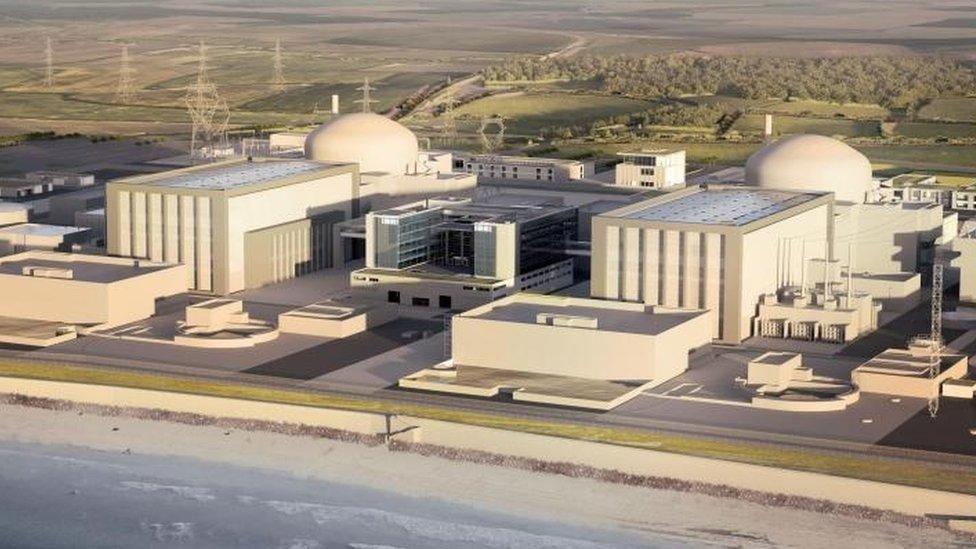
No other major developed economy has invited Chinese involvement in a key nuclear energy project
They will be keen to meet her, a rare European leader who is likely to remain in office for some years to come.
And what a lot they will have to discuss. With President Xi, there will be the small matter of Mrs May's decision to delay approval of the Hinkley Point nuclear power plant in Somerset, something in which China has invested billions of pounds.
After years when George Osborne wrapped his arms around Beijing, Mrs May will have to explain her caution and the security concerns of some of her officials.
With Mr Putin, there will be the tricky matter of EU sanctions over Ukraine, manoeuvring in the Baltics by Russia and those many incursions by their jets into British airspace.
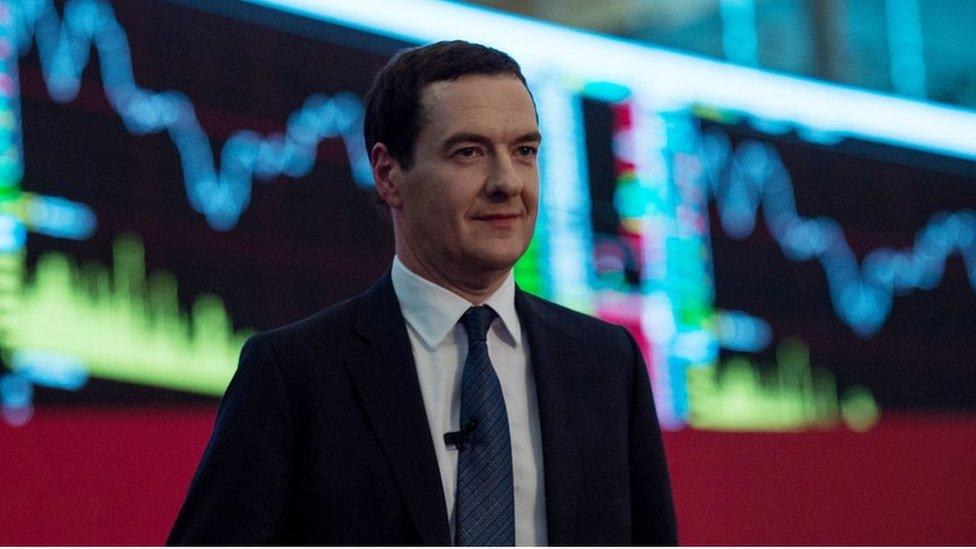
George Osborne's China policy is under review
And with Mr Modi, the prime minister will have to smooth over concerns about her decision to make it harder for Indian students to come to Britain in an attempt to cut migration numbers.
Yet amid these tensions, Mrs May will try to step up her diplomatic campaign to convince the international community that Britain is not turning in on itself after the vote for Brexit.
Her officials talk of forging a new global role for the UK and using the G20 to highlight opportunities that will arise for the rest of the world once Britain leaves the EU. Britain, she will tell her counterparts, is open for business.
The question, of course, is what this new role for Britain will be. The Foreign Office is still scratching around for ideas, but no-one yet can tell me what this great new global role will be. There is no money to spend on big initiatives and there is little appetite for military intervention.
Sources at the heart of government insist that a lot is being done already. They point out that since the referendum to leave the EU, Britain has deployed hundreds more troops to Iraq and Afghanistan, Estonia and Poland, Somalia and South Sudan.
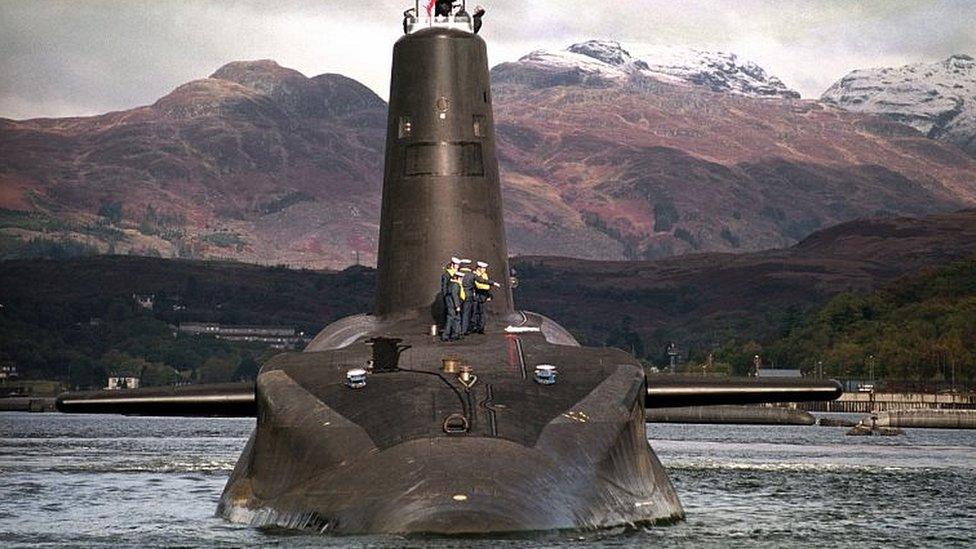
The UK's nuclear deterrent Trident will stay
It has reaffirmed its commitment to the Trident nuclear deterrent - something Mrs May did herself in the House of Commons. And the UK has also promised once again to spend 2% of the nation's wealth on defence and 0.7% on international aid - one of the few countries to do both.
In coming days Britain will be hosting conferences in London on Syria and international peacekeeping. And there is talk of Mrs May doing more to combat human trafficking. These, officials say, are not the actions of a government contemplating its navel in a post-Brexit sulk.
But there is a hidden tension at the heart of all this. Despite the headlines of Britain seeking a new global role, officials tell me that the prime minister is also keen to keep a clear domestic focus on foreign policy.
The National Security Council - under its creator, David Cameron - was a forum where all the world was a stage. Sources say this will not be the case with Mrs May.
When discussions drift into why this country is doing this and that country doing that, she asks: "But what does this mean for Britain?"
She wants the NSC to do more of what it says on the tin and focus on national security. This is how she operated as home secretary and it is a modus operandi that she is bringing to Downing Street.
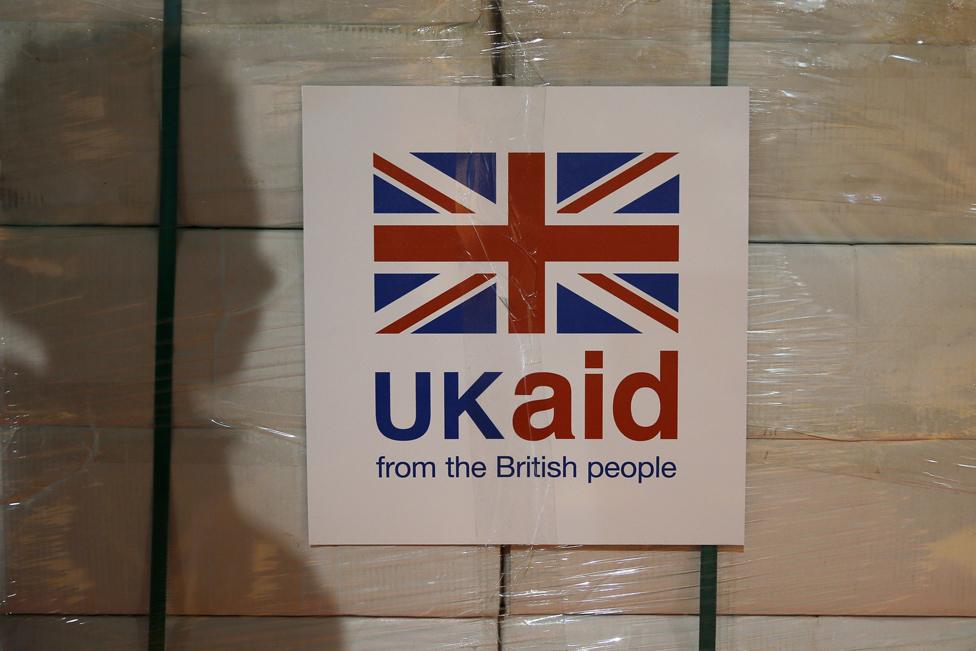
UK aid might be targeted in the light of British security concerns
The question is how this might work in practice. It could mean targeting more aid spending on areas that impact on British national security, a trend started under the previous government. The government could, for example, spend more on education in refugee camps to counter radicalisation.
Or it could mean focusing more on ending conflicts in Yemen, Somalia and South Sudan so they don't end up being failed state bolt-holes for fighters from the so-called Islamic State ousted from Syria and Iraq, particularly if Mosul falls later this year.
But these are just my guesses. At some point Mrs May will have to explain how British foreign policy can be more global and domestic at the same time. The G20 in China might be a good place to start.
- Published31 July 2016

- Published31 August 2016
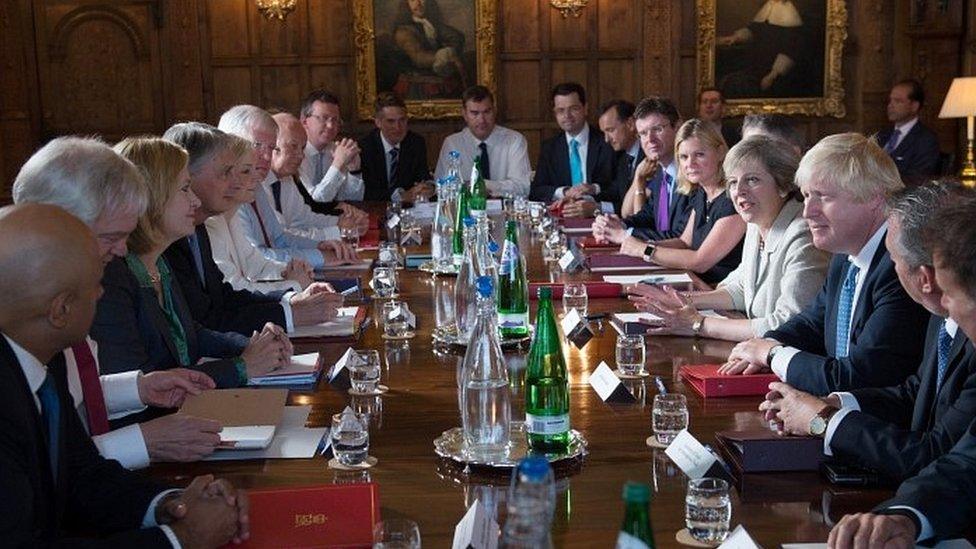
- Published1 September 2016
